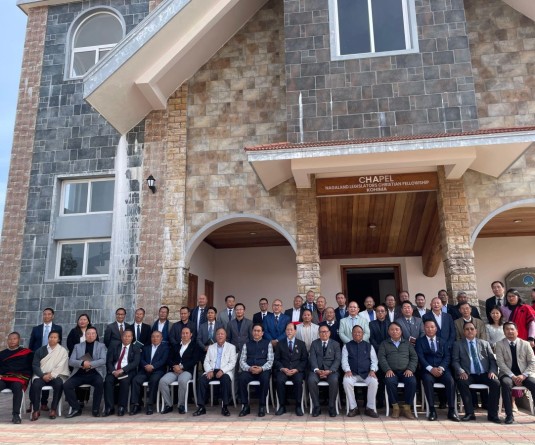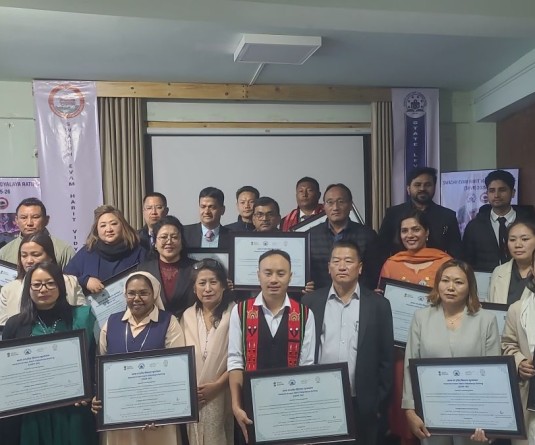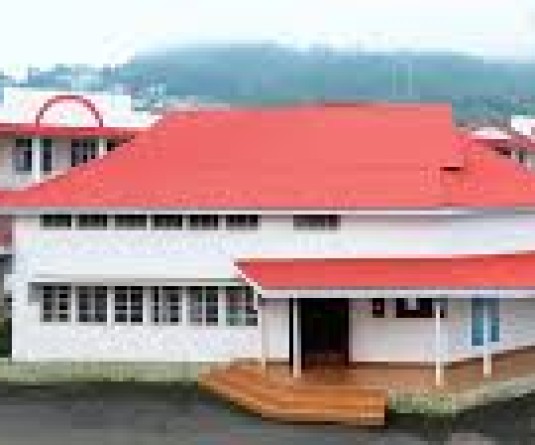
Dimapur, October 5 (MExN): The Global Naga Forum (GNF) on Monday appealed to all Naga political negotiators to uphold the “non-negotiable political” rights of the Nagas for an honourable political solution.
In a letter addressed to the Chairman of NSCN (IM) and Convenor of Working Committee, Naga National Political Groups (WC, NNPGs), the GNF acknowledged the sacrifices made by various Naga political groups (NPGs) and urged them to “acknowledge that countless ordinary patriotic Naga men and women have paid a heavy price in one way or the other in the struggle for our common aspiration towards self-determination.”
‘We believe that there are well-meaning patriotic Naga public, professionals and intellectuals whose goodwill and voices should be recognized, accepted and tapped as resources for the progressive realization of the common aspiration,’ stated the letter appended on behalf of GNF by 45 Nagas from different walks of life.
Stating that there is an ‘unmistakable fact’ that the Nagas are united in their genuine desire for peace through an inclusive, honorable and acceptable solution, the GNF urged NPGs to “settle their differences through dialogue within the Naga family and be unified in purpose by agreeing to converge at a non-negotiable position in the interest of all the Nagas for self-determination.”
“The Naga struggle as a ‘social contract’ is binding on all of us as mutual stakeholders and we truly believe that this common cause is sacrosanct and it should be honoured as bigger and above all the Naga organizations and their leaders,” it underscored.
Stating that Nagas “are living in a historic moment” which may either create a “harmonious future collectively or regress into chaos, utter confusion and internecine conflicts of mutual destruction,” the GNF expressed concerns about the “hovering air of uncertainty, confusion and differences” within the NPGs.
It claimed that “unseen hands of hawkish elements are working with a systematic design of divide and destroy policy” to split the rank and file of the NPGs; “pitching groups against each other by constructing and implanting divisive narratives so as to exploit the confusion, ethnic fault lines and fear for manufacturing consent to force the most deceptive piecemeal packages as solutions to the Nagas’ aspiration to live as a people with peace and dignity.”
The GNF observed that Nagas have come a long way from the submission of the memorandum to the Simon Commission on January 10, 1929 to the present political dialogues.
It acknowledged the “commendable outcomes of the Historic Framework Agreement of August 5, 2015 and the official recognition of the Unique History and Situation of the Nagas by the Government of India in 2002,” as well as the Agreed Position between the GoI and the WC, NNPGs signed on November 17, 2017, in which “The Government of India recognizes the historical and political rights of the Nagas to self-determine their future in consonance with their distinct identity.”
However, the GNF cautioned that several accords and peace agreements from the Nine Point Agreement, the Sixteen Point Agreement and to the Shillong Accord of 1975 have not yielded the “desired results for sustainable peace because these agreements and accord were not inclusive, honourable and acceptable.”
Stating that the history of past negotiations with the GoI had been “a saga of missed opportunities due to our mutual distrust of each other, confusion and lack of clarity of position,” it cautioned that the Nagas “cannot afford to commit the same blunders.”
The GNF appealed the Naga Political negotiators to reconcile on the basis of the historical and political rights and treat all the Nagas as one irrespective of the ideological, organizational and territorial politico-administrative divides, and ensure that integration of the contiguous Naga areas is the “sine quo non (an essential condition) for an honorable solution.”
“This demand should not and cannot be taken as a new demand. In fact, it was agreed in the past agreements as per the Point 6 of the Nine Point Agreement and point 13 of the Sixteen Point Agreement respectively,” it said.
“Given the unique history, identity and situation of the Nagas, we strongly believe that we have the right determine our right to freely pursue our political, economic, social and cultural development as a distinct people... Hence, integration of the Naga homelands within India is a non-negotiable issue,” the GNF asserted.
It also said that the flag and constitution “forms the heart and soul of the Naga identity, their unique history and situation as duly acknowledged by the Government of India.”
Further, it said that the acknowledgement of the distinct identity of the Nagas by the GoI must be translated into and protected by a separate Naga passport and a Visa regime, and asserted that without such mechanism, the acknowledgement “shall be but a lip service” given the demographic disparity.
The GNF expounded that the memorandum to Simon Commission, declaration of Independence on August 14, 1947 and the 1951 Plebiscite, ‘unequivocally elucidated’ that the Naga people stands undivided in their “aspiration for a Sovereign Nagaland.”
“If any single group can bring this in toto, we believe that all Nagas shall agree. However, if the Agreement currently being negotiated with GoI is going to be anything less, then it is critically important to be transparent and take all stakeholders on board before any such Agreement is signed,” it said.
There should be “clear clause” to keep the “path open for the Nagas to decide their future course of action to enter into a new deal,” it added.






